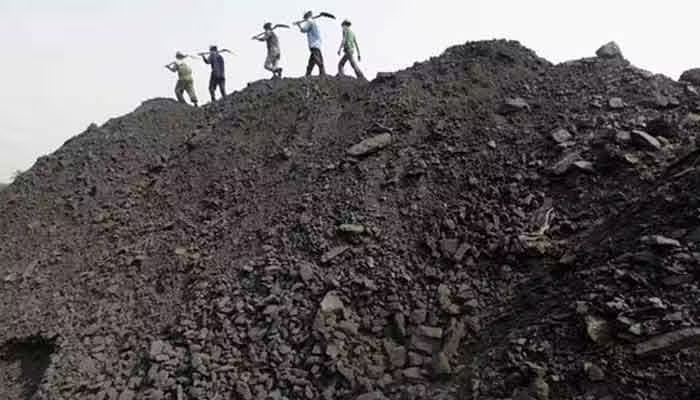The coal supply across Balochistan’s Dakki district has been halted following a brutal terrorist attack on a coal mine in Dhaka, leaving the region’s coal industry in disarray. This disruption has forced more than 40,000 laborers to return to their native areas, according to the local labor association, as fear and insecurity ripple through the community.
The attack, which has raised serious concerns about the safety of coal mine workers, is not just a local issue. Its impact is being felt across Pakistan, as the district’s coal supply to major cities, including Sindh and Punjab, has come to a standstill. The suspension of coal supply is now threatening to impact industrial production across the country, underlining the critical role of Balochistan’s coal industry in Pakistan’s economic ecosystem.
Impact on Laborers and the Coal Industry
According to the labor association, the coal mining industry in the district was largely dependent on its workforce of over 50,000 non-local workers. These miners were employed across more than 1,200 coal mines, contributing significantly to the region’s economy. Every day, as many as 150 trucks were used to transport coal from Balochistan to other parts of the country, including Sindh and Punjab. This supply chain has now been brought to a grinding halt.
With 40,000 laborers leaving the district due to fears for their safety, the future of coal mining operations looks uncertain. Most of the workers have retreated to their native areas, many of which are located in other provinces or even outside of Pakistan. This exodus of labor has dealt a severe blow to an industry already grappling with security concerns and hazardous working conditions.
The Scale of Balochistan’s Coal Industry
Balochistan is home to vast coal reserves, with an estimated volume of more than 25 million tons. The province’s coal mines have been a crucial source of employment, providing jobs to around 80,000 workers in over 2,600 mines. These mines not only serve domestic energy needs but also supply coal to various industries across Pakistan, making them an essential cog in the country’s industrial engine.
The suspension of coal supply from Balochistan has caused concern in Pakistan’s industrial sector, which relies heavily on coal for energy production. With coal being a primary source of fuel for power plants, cement factories, and other industrial units, any prolonged disruption could have a cascading effect on the country’s economy. The labor association has already warned that the industrial production of the nation is likely to face severe setbacks due to the sudden halt in coal shipments.
The Human Cost of Insecurity
The terrorist attack on the Dakki coal mines has highlighted the perilous conditions under which coal miners work in Balochistan. The labor association has reported that 20 miners were killed and seven others were injured in the attack. Such incidents are not uncommon in Balochistan, where militants often target laborers, particularly those working in remote areas.
The workers’ families are left devastated, not only by the loss of their loved ones but also by the loss of their primary breadwinners. In response to the tragedy, the Balochistan government has announced a compensation package of Rs 15.15 lakh for the families of the workers killed in the attack. However, the adequacy of this compensation is a subject of debate, considering the extent of loss and suffering the families are enduring.
It is worth noting that six of the miners killed in the attack were from Afghanistan. This highlights the diverse composition of the workforce in Balochistan’s coal mines, which draws laborers not only from across Pakistan but also from neighboring countries. Afghan workers, like their Pakistani counterparts, have long played a vital role in sustaining the coal industry in the province. Their displacement will have a further destabilizing effect on the industry, as it will likely be challenging to find replacements willing to work under such dangerous conditions.
Government Response and the Way Forward
The Balochistan government’s response to the attack has been swift but may not be sufficient to address the broader security concerns facing the region’s coal mining industry. While the announcement of compensation is a step toward addressing the immediate needs of the affected families, it does little to restore confidence in the safety of workers who remain in the district.
Long-term solutions are needed to secure the future of the coal mining industry in Balochistan. This could involve bolstering security in and around mining areas, improving the infrastructure to ensure better emergency responses, and fostering cooperation between local authorities and law enforcement to prevent future attacks. Additionally, efforts must be made to improve working conditions for miners, who often toil in hazardous environments with limited access to healthcare, safety equipment, and legal protections.
The suspension of coal supply in Balochistan following the terrorist attack on Dakki’s coal mines has thrown the region’s economy and Pakistan’s industrial production into uncertainty. With tens of thousands of workers fleeing the area and the entire coal supply chain halted, the impact is being felt far and wide. The government must not only provide immediate relief to the affected families but also take concrete steps to restore security and stability to the coal industry. Without decisive action, the consequences of this disruption could ripple through the national economy for months to come.



